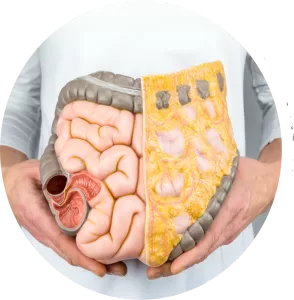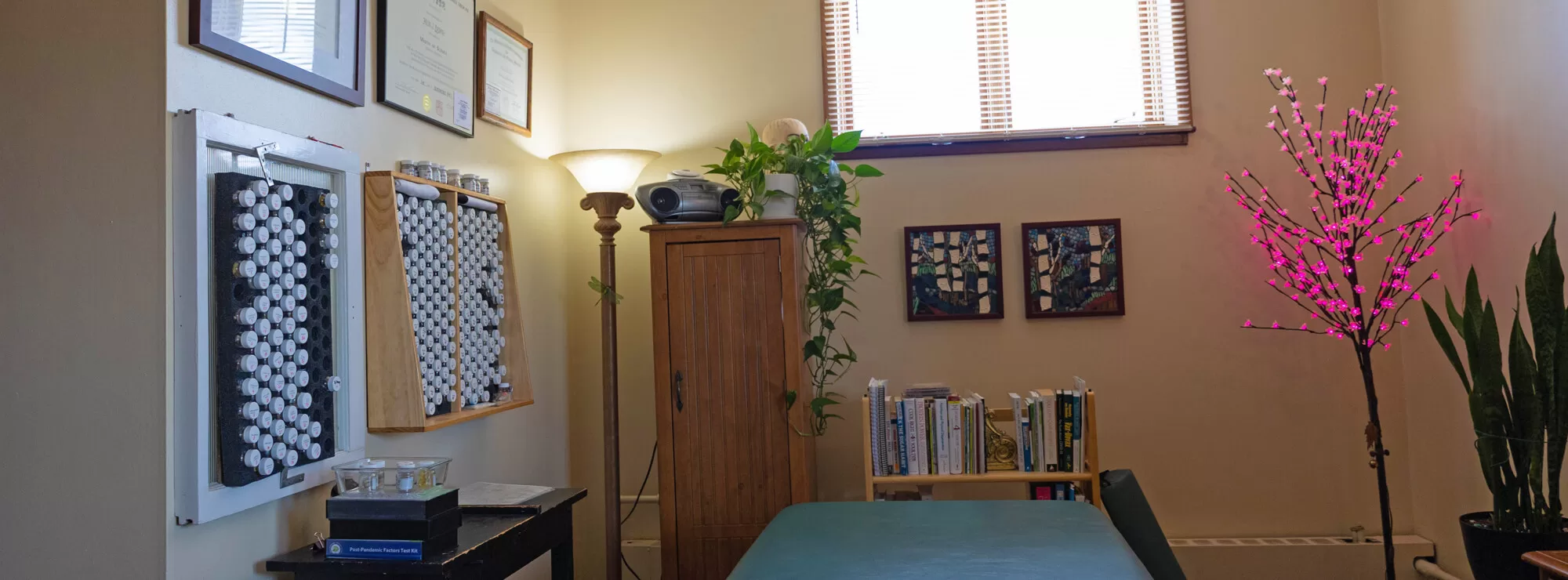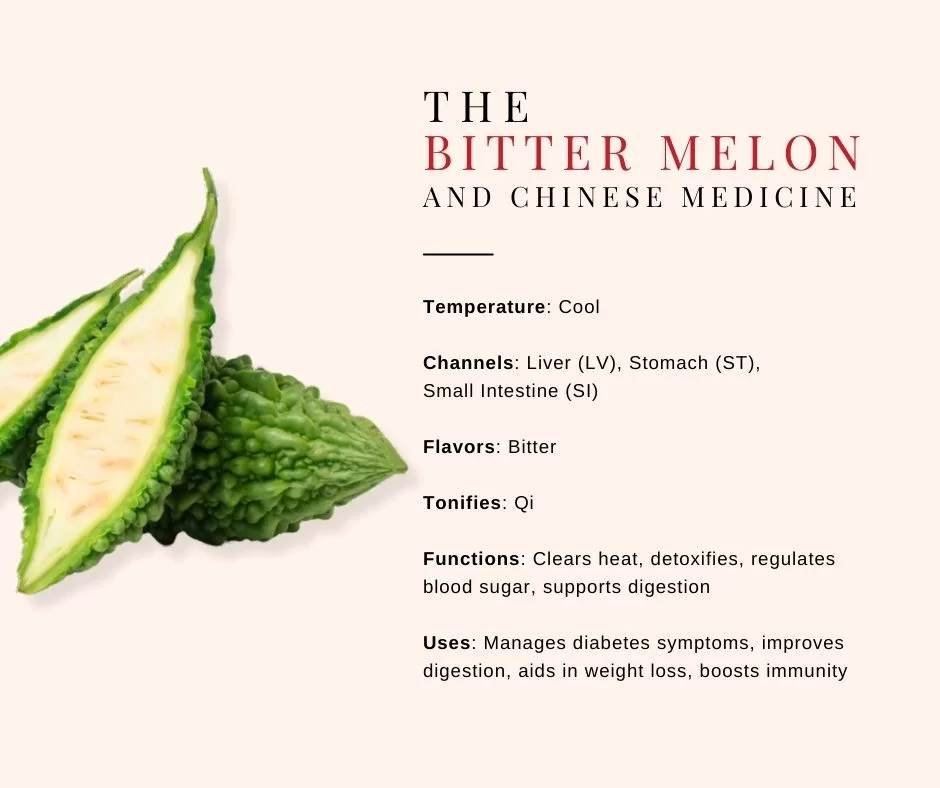 Colon cancer is the third most common cancer in the United States with about 60,000 deaths from it every year. Like all cancer, treatment can be long, uncomfortable and come with many side effects. Those getting chemotherapy may experience nausea, vomiting, postoperative pain, cancer related pain, insomnia and anxiety. The chronic pain can significantly impact quality of life. Most patients are prescribed medications such as opioids for pain that have side effects and are highly addictive.
Colon cancer is the third most common cancer in the United States with about 60,000 deaths from it every year. Like all cancer, treatment can be long, uncomfortable and come with many side effects. Those getting chemotherapy may experience nausea, vomiting, postoperative pain, cancer related pain, insomnia and anxiety. The chronic pain can significantly impact quality of life. Most patients are prescribed medications such as opioids for pain that have side effects and are highly addictive.
In Traditional Chinese Medicine it is believed that colon cancer comes from a number of underlying factors such as spleen yang deficiency, kidney yang deficiency, kidney yin deficiency and liver yin deficiency. Acupuncture works by addressing these deficiencies to return the body back to balance. Using specific points on the body related to these organs, acupuncture stimulates the body’s natural energy flow, Qi, and blood flow to improve organ health.
Going through chemotherapy treatment can cause severe fatigue. One study showed that acupuncture resulted in a 30 percent improvement in a baseline fatigue score.
Insomnia and anxiety are one of the most common symptoms that cancer patients experience. Acupuncture has been proven in numerous studies to be just as effective, if not more, than prescription drugs in improving sleep and decreasing stress and anxiety levels. This alternative treatment has also been shown to improve overall mood.
Acupuncture can help boost the immune system. Chemotherapy can greatly lower the body’s immune defense, leaving one in a vulnerable state due to a decrease in white-blood cell count. By increasing blood flow and stimulating Qi, acupuncture is a great way to improve immune function.
Cancer and cancer treatment is nothing to take lightly. A diagnosis can drastically change one’s life not only physically but mentally as well. If you have been diagnosed with colon cancer and/or going through chemotherapy, it is important to remember that there are alternative, safe treatments that can help make the process easier. If a loved one is going through treatment, support is the best thing you can do for them. March is National Colorectal Cancer Awareness Month and there is no better time to get tested and become educated on the facts.
Sources: https://theory.yinyanghouse.com/conditions-treated/alternative-natural-options-for-colon-cancer
Five Foods To Avoid For A Healthy Colon
If you want to keep your colon clean it is important your diet reflects that. Optimal colon health is very dependent on what you are or are not putting into your body. There are specific foods that don’t help out your colon at all. Take a look at these five foods you should avoid to make sure your colon is healthy and functioning at its highest possible level.
- Processed Meats
One of the most important things to avoid if wanting a healthy colon is processed meats, and this can be hard to do. In the food culture we are surrounded by, processed meats are on a regular display. Lots of restaurants and grocery stores are doing a better job of avoiding processed meats now, but it can still be hard to avoid them. You want to make sure you do though, as they have been linked to an increased risk of colon cancer.
- Alcohol
Alcohol can be detrimental to your body if you so let it. An increased risk of colon cancer, damage to the digestive tract and liver damage are all risks you take when partaking in heavy consumption of alcohol. So do your colon a favor and limit your intake.
- Burned or Charred Foods
It is best to utilize cooking methods that decrease the risk for colon injury or cancer. Burning or charring foods creates carcinogens, which can lead to an increased chance of colon cancer. Take care of your foods when barbecuing and avoid eating over blackened or charred areas.
- Fast-Food
This one is pretty self-explanatory. Don’t eat fast-food. Just do yourself a favor and avoid these foods high in fat, sodium and cholesterol. Help out your colon, pass on the fast-food.
- Limit Sugar
Diets high in sugar have been shown to increase the chance of colon problems, such as Crohn’s Disease and ulcerative colitis. Sugar has yet to be directly linked to colon cancer, but it is linked to weight gain and obesity.



 Colon cancer is the third most common cancer in the United States with about 60,000 deaths from it every year. Like all cancer, treatment can be long, uncomfortable and come with many side effects. Those getting chemotherapy may experience nausea, vomiting, postoperative pain, cancer related pain, insomnia and anxiety. The chronic pain can significantly impact quality of life. Most patients are prescribed medications such as opioids for pain that have side effects and are highly addictive.
Colon cancer is the third most common cancer in the United States with about 60,000 deaths from it every year. Like all cancer, treatment can be long, uncomfortable and come with many side effects. Those getting chemotherapy may experience nausea, vomiting, postoperative pain, cancer related pain, insomnia and anxiety. The chronic pain can significantly impact quality of life. Most patients are prescribed medications such as opioids for pain that have side effects and are highly addictive. 


